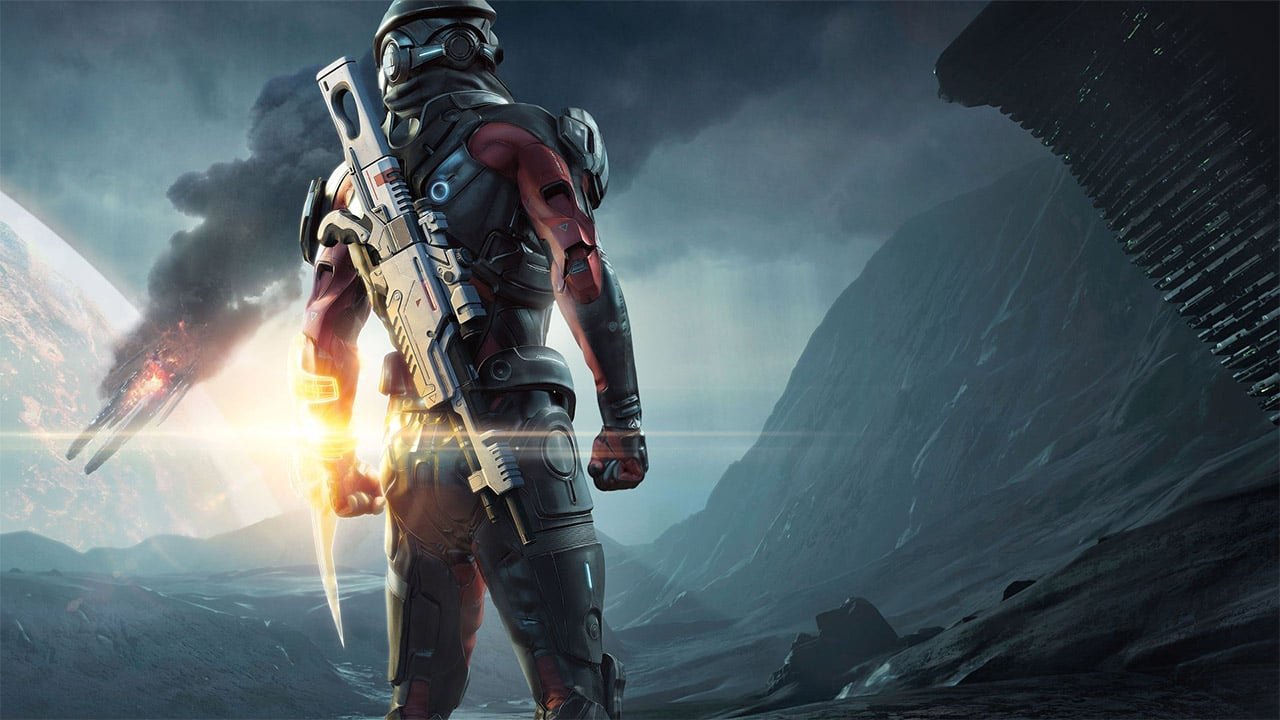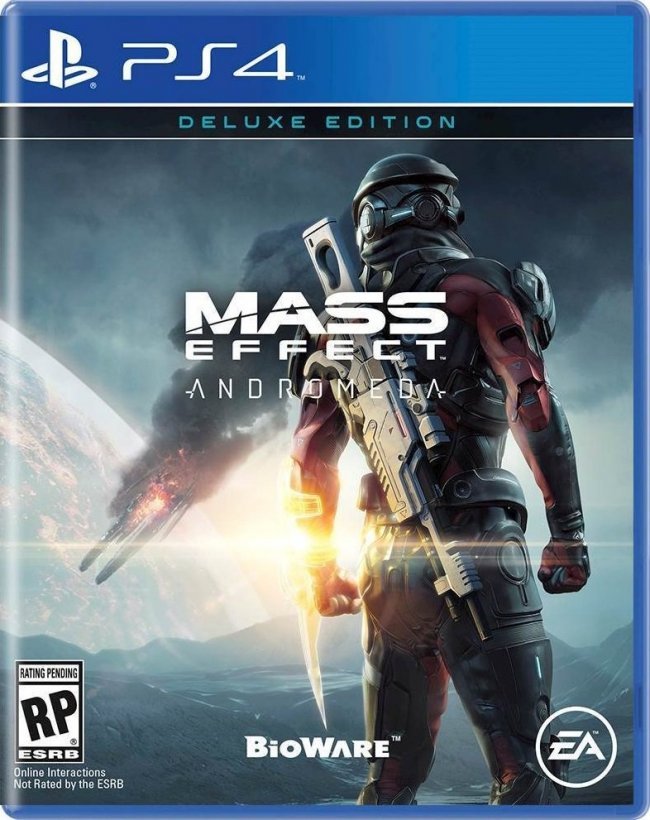The original Mass Effect was one of the very first reviews I ever penned, and it impacted me in a big way. While the whole “multi-game” saga had been done before, to see it on the level of a true space opera was something else. Mass Effect even had remnants of BioWare’s 90s days, before they shifted more towards action-adventures, and crafted some of the most open-ended RPGs of our time. Don’t get me wrong, I love Mass Effect 2 for my own reasons, but it was a palpable shift for BioWare. The writing started focusing more on one-liners than exposition, and action flavoured set pieces starting popping up more and more. This stalwart commitment to brawn over brains finally came back to bite them by the time the credits rolled for Mass Effect 3, so much so that they even had to create an “apology ending” that still wasn’t sufficient enough. Although they’ve had several successes since then, it was the end of an era, and Mass Effect: Andromeda is another missed opportunity to herald their return to greatness. To clarify, Mass Effect: Andromeda has the bone structure of a good Mass Effect game, but its marrow has been filled in by what I can only describe as BioWare’s “B-team.”
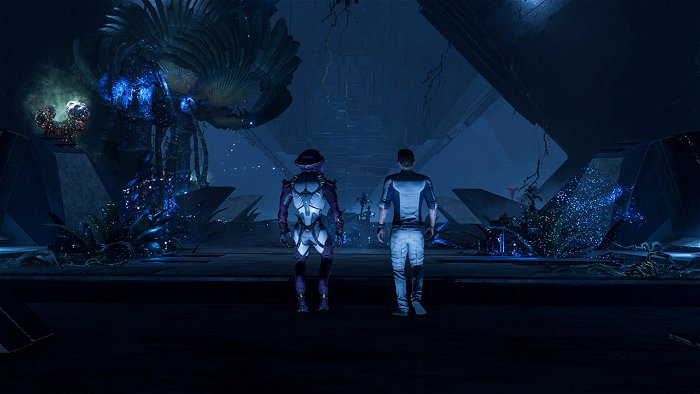
Mentioning bone structure is probably a sore spot for the developers, as the engine is host to a number of non-game breaking oddities and weird animations that give the PC version of Assassin’s Creed Unity a run for its money. Having gone back and replayed several post-Knights of the Old Republic BioWare creations for this assessment, it’s also possible that Mass Effect: Andromeda will win the Golden Raspberry for “least inspired performances.” “I’ve been waiting 600 years for this,” with the most stone-faced expression I’ve ever seen is a real thing that happened.
Cleverly, BioWare gets to have its cake and eat it too with Mass Effect: Andromeda ‘s premise. A family unit of a father, son, and daughter dubbed the Ryder clan have been put in charge of finding “New Earth,” by way of the series’ signature interstellar travel. Yes, it takes place in the same universe as Mass Effect (you’re sent on your 600 year cryo-sleep journey after the second game concludes)with the same alien races you know and love (and several hit or miss new ones), but now we’re out of our comfort zone and out of the Milky Way Galaxy. As a squad member aptly puts it, “it’s not like the cavalry is coming to save the day.” We’re alone on this one, which is BioWare’s chance to hit the reset button.
That said, I think they reset a little too much for most of Mass Effect’s target audience. There’s very little conflict involved, as most of Mass Effect: Andromeda is literally spent scouring this unknown universe, which includes locating scientific discoveries (through scanning basically everything with the occasional Space Sudoku minigame), allies, and habitable planets. Much of this endeavour is scripted by way of a critical path and side missions, but the journey wasn’t ever dull, just muted. It’s an acquired taste, something I think a lot of people are going to discover when they boot up Mass Effect: Andromeda expecting a re-treading of Shepard’s action-packed Rambo romp through the galaxy.
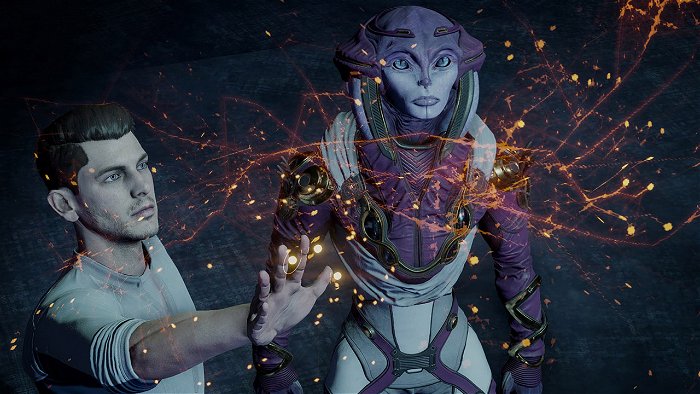
The familial angle helps ground the story immediately, but in several ways it devolves into a half-measure, relegated to the background. The new conversation system doesn’t help, because while I do like the “multi-emotion” angle better than the “GOOD Paragon” or “BAD Renegade” shtick, the outcomes mostly feel the same, Telltale style, complete with a lack of repercussions no matter what choice you pick. It’s a bittersweet feeling given the huge stakes of the previous games, and again, all adds up to the general melancholy theme of Mass Effect: Andromeda.
Its biggest upgrade is undoubtedly in the combat department. Now you can swap between “Profiles,” Mass Effect: Andromeda’s version of classes that delve into archetypes like stealth assassin, tank, support, and berserker, all with its own biotic twist that can be swapped in an instant, in-combat. The jump jets feel fantastic especially when coupled with a dash button (and an air dash on top of that!), which makes the open world environments of the planets and the linear tunnels for critical missions more vertical than ever. It makes for some of the best third-person encounters in recent years, especially when you’re back-dashing into cover, throwing up a singularity, and putting up your own makeshift energy barricade after that cover gets blown up by an errant grenade.
Oh, there’s a car, too. The Nomad is basically an upgradeable Mako 2.0, with arcadey boost and jumping abilities, but it fits in Mass Effect: Andromeda far more than it ever did in the original Mass Effect. Now planets actually have some decent things to do on them, and the idea of constantly raising the viability of each planet is a rush that extends beyond quantifiable upgrades and stat bonuses.
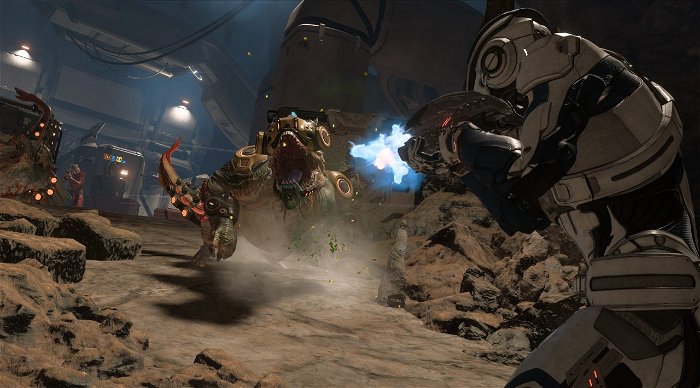
Multiplayer is back, but you really have to ask yourself if it’s even necessary. Mass Effect 3 had a very dedicated fanbase with its squad-based horde mode, but that occurred when nearly every game had horde tacked onto it. It also had microtransactions. Mass Effect: Andromeda is the same in that regard, and they assist in locking down and gating characters, items, and consumables.
The new combat digs make for a better time in the arena. I loved jumping and air dashing around like a maniac, and although each map isn’t nearly as open as I’d like, there is a larger degree of freedom than a lot of other third-person shooters. The new abilities mesh well together too, and I think a lot of folks are going to have fun wrangling up their buddies and finding synergies together.
As for me, it’s just kind of there. All of that same excitement can be had in single player while I’m developing relationships with my squad, and the rat race of ranking up just isn’t enough. I mean I’d have more incentive to run that race if so much wasn’t gated behind loot boxes — I sorely wanted to jump in as an Angara, the new alien race, but surprise, it was locked behind “rare” and “ultra rare” drops. You can earn in-game currency over time to nab boxes, but it’s a slow process that attempts to drive you down the path of spending real money.
If you’re worried that the multiplayer is tied to the campaign, rest easy on that front. You can opt to send squads on “missions,” just like the recent World of Warcraft expansion or the eternally popular Final Fantasy Tactics bar mechanic, and get items if you want. It’s not directly linked to how successful you are in the story, it just gives you a tiny edge. It’s a great compromise.
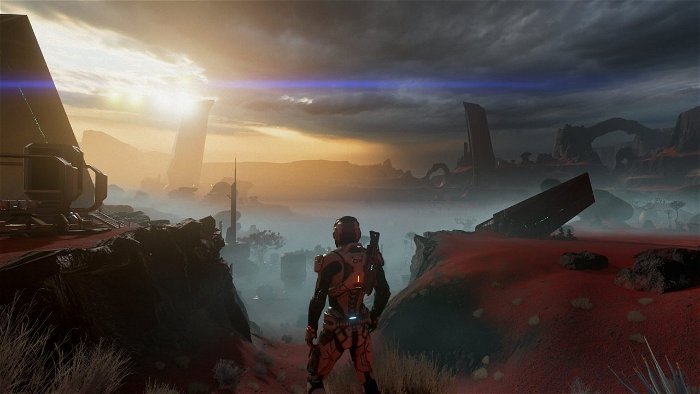
At times, Mass Effect: Andromeda can feel like an expansion and not a true follow-up. A lot of strides have been made to improve the already dazzling combat system (which is leaps and bounds more exciting than your average cover shooter), but so much of it feels like a regression. That slip still puts it a cut above a lot of others in the same space, but the failure to iterate after the divisive conclusion of the original trilogy isn’t going to do BioWare any favours. They’re still putting out some flashes of brilliance, but they really need an internal wake-up call and a sincere heart-to-heart with EA on their love of mandatory microtransactions as they re-assess their priorities going forward.
